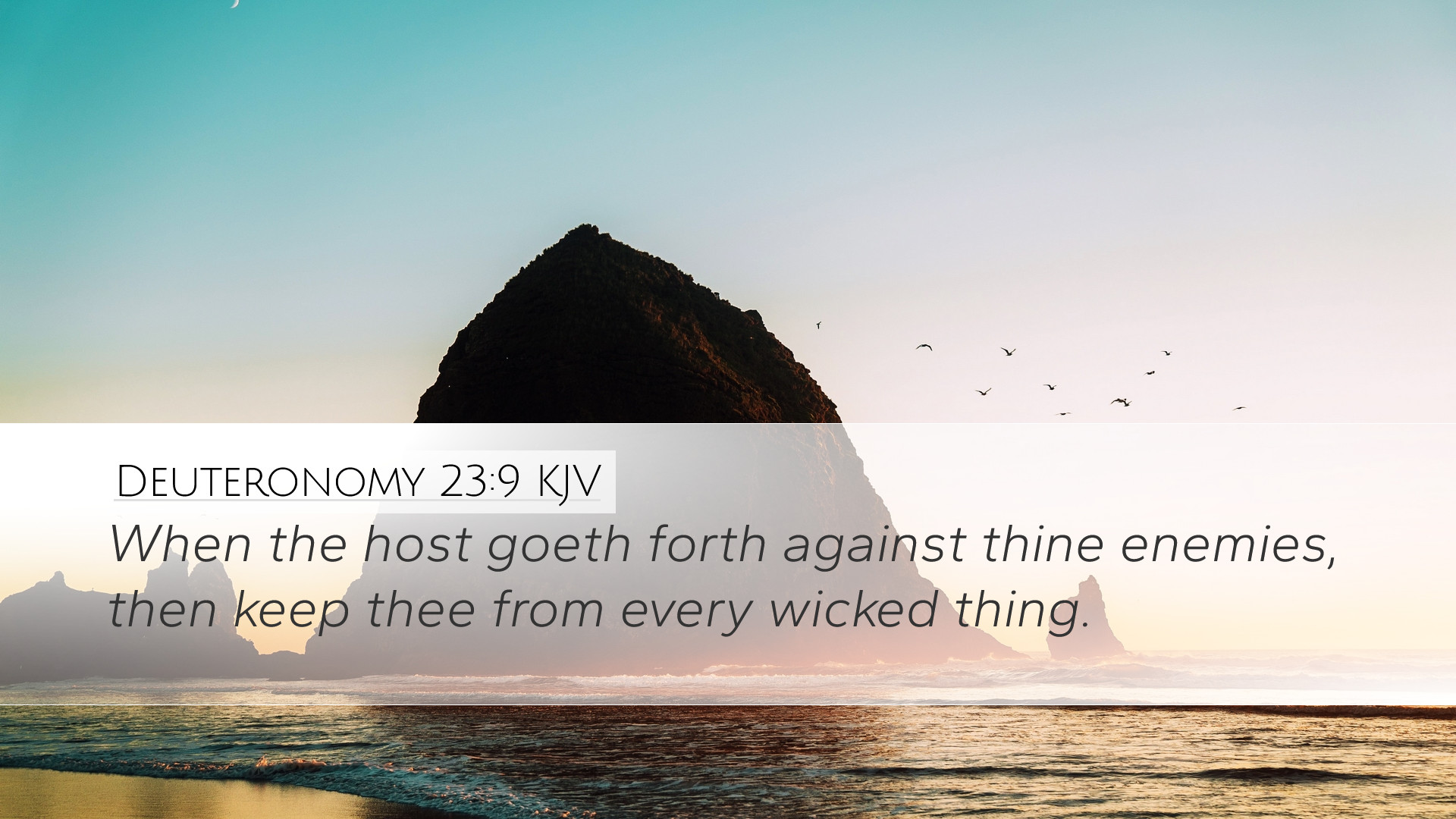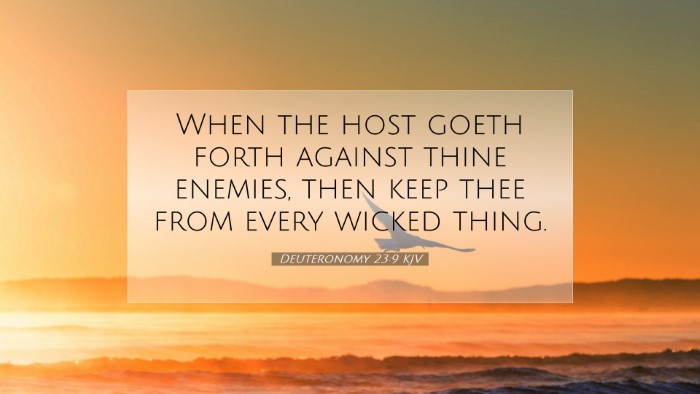Commentary on Deuteronomy 23:9
Deuteronomy 23:9 states:
“When thou goest out to encamp against thine enemies, then keep thee from every wicked thing.”
Overview
This verse emphasizes the importance of holiness and purity, particularly when facing adversities such as battles or conflicts. The Israelites were cautioned about the necessity of maintaining a righteous life, especially in the face of potential temptation and moral challenges that arise during wartime.
Theological Insights
The command to keep away from “every wicked thing” signals a broader theological principle that reflects God’s desire for His people to live separate from sin, even in dire situations.
Matthew Henry’s Commentary
Matthew Henry notes that this verse is a reminder of the duty of vigilance in moral and spiritual conduct. As Henry explains:
- Preparation for Conflict: The act of going out to encamp against the enemy is inherently perilous, not only physically but spiritually. The Israelites are urged to prepare themselves with spiritual discipline.
- Maintaining Integrity: Henry further highlights that in times of distress, individuals must deliberate and attempt to lead a life aligned with God’s commands to avoid wickedness.
- Consequences of Sin: Henry underscores that engaging in wickedness may lead to God’s disfavor, which could result in defeat. Therefore, spiritual integrity is critical for victory.
Albert Barnes’ Notes
Albert Barnes also provides pointed insights on this verse:
- Context of Warfare: Barnes explains that in ancient Israel, the practice of warfare was not merely a physical endeavor; it was intertwined with spiritual matters. The Israelites were not just fighting against flesh and blood but also wrestling with principalities and powers.
- Spiritual Purity: He emphasizes that the exhortation to avoid wickedness underlines the overarching theme of spiritual purity. The purity of the people was essential for God’s hand to be with them during their wartime efforts.
- Significance of Separation: Barnes draws attention to the idea that God's people must remain distinct from the surrounding nations and their practices, which often included moral corruptions that could easily lead to Israel's downfall.
Adam Clarke’s Commentary
Adam Clarke adds another dimension to understanding this verse, focusing on the detailed implications for spiritual life:
- The Nature of Temptation: Clarke notes that temptation may come upon the Israelites when they are in the midst of conflict. The immense stress and strain of battle are conditions that can lead to moral failures.
- Practical Applications: Clarke argues that this principle can be applied to all spiritual battles. Just as the Israelites were to maintain holiness, Christians today must also avoid sin and immorality, particularly in demanding circumstances.
- Reflection on Sin: Clarke encourages self-reflection regarding what constitutes ‘wicked things’ in our own lives, promoting a personal commitment to purity.
Application for Today
This verse is especially relevant for pastors and theologians today:
- Leadership in Conflict: Leaders must be vigilant in maintaining their integrity and leading their communities away from wrongdoing, especially in times of societal strife or conflict.
- Moral Teachings: This principle can serve as a base for teaching on the importance of holiness in the Christian walk, reminding believers that the battle is not only external but also internal.
- Community Standards: Churches and groups can benefit from reinforcing community standards based on biblical holiness to foster a supportive environment during spiritual warfare, whether that be through personal trials or communal challenges.
Conclusion
Deuteronomy 23:9 serves as a profound reminder of the implications of sin and the necessity of holiness, particularly in the face of adversity. By drawing from the insights of Matthew Henry, Albert Barnes, and Adam Clarke, we discern the critical need for spiritual preparation and the importance of maintaining a righteous standard amid challenges.


